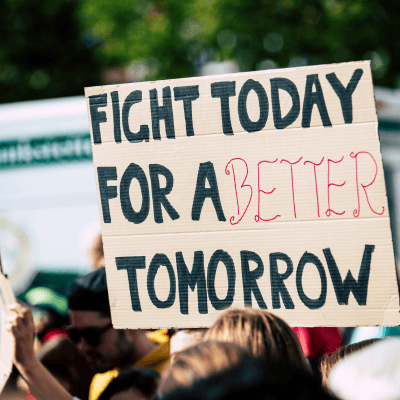Definition:
adj. Having or marked by an active awareness of systemic injustices and prejudices, especially those involving the treatment of ethnic, racial, or sexual minorities
Disparaging: as used by political opponents, of or relating to a liberal progressive orthodoxy.
Introduction:

In today's political and social landscape, the term "woke" has become a buzzword used by many, but often misunderstood by even more. What started as a powerful concept has, over time, been twisted into a pejorative term by critics. Let’s dive into the true meaning of "woke" and why it matters in today’s fight for social justice.
The History:
The term "woke" originally comes from African American Vernacular English (AAVE) and was used to describe someone who is awake or aware, particularly about issues related to racial injustice. To be "woke" means being aware of and actively attentive to the social injustices that persist, especially racism. In its most authentic sense, being woke means understanding the realities of systemic oppression, paying attention to the struggles of marginalized communities, and taking action to address these wrongs.
How It's Currently Used:
However, as the term gained popularity, especially with the rise of the Black Lives Matter movement and other social justice causes, "wokeness" caught the attention of political commentators. Over time, it has been co-opted, with some using it to describe individuals or movements perceived as being overly politically correct or too focused on progressive causes. In this distorted usage, "woke" has become a label to dismiss or deride efforts toward equity, inclusion, and justice, painting them as unnecessary or even extreme.
This shift in the use of "woke" is significant. When detractors use the term to mock or belittle, they undermine the ongoing fight for justice. By turning "wokeness" into a punchline, they distract from the very real issues at the heart of social movements, whether they concern racial equality, gender rights, LGBTQ+ inclusion, or economic justice.
We cannot let the true meaning of "woke" be lost in the noise of political rhetoric. It is about awareness. It is about staying vigilant to the injustices that continue to affect our world, from police brutality to gender inequality. Those who mock wokeness are often those who are least affected by these issues. But to be woke isn’t about performative outrage or virtue signaling. It’s about understanding the world we live in and striving to make it better for everyone, especially those who have been silenced or ignored for too long.
Final Thoughts:
The next time someone uses "woke" as an insult, remember its roots. Being woke means being conscious of injustice, and that is something to embrace, not ridicule. We need more wokeness in this world, not less, if we are going to confront and overcome the systemic issues that continue to hold so many people back.


